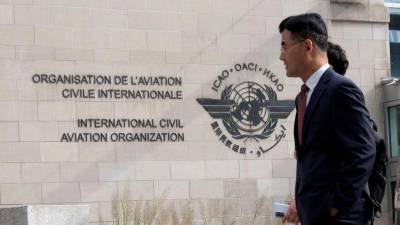MONTREAL: A major international aviation conference has commenced under the shadow of recent cyberattacks and deepening geopolitical divisions.
The United Nations’ International Civil Aviation Organization (ICAO) triennial assembly runs from September 23 to October 3, bringing together global leaders to address critical industry challenges.
Delegates are prioritising international cooperation to counter sophisticated cyber threats that have recently disrupted automated systems at major European airports.
The assembly must also navigate significant geopolitical tensions involving Russia and North Korea, which have been reproached by ICAO’s governing council for disturbances to vital satellite navigation systems.
Russia is actively campaigning to regain a seat on the 36-state governing council after losing its position in 2022 following the invasion of Ukraine.
North Korea has accused the ICAO council of applying a double standard for not taking action against South Korea over alleged military drone incursions.
Vincent Correia, co-director of McGill University’s Institute of Air and Space Law, noted that aviation has historically fostered technical cooperation even during the Cold War, but expressed concern over the current high level of tensions.
The industry simultaneously faces immense pressure to advance its sustainability goals, with the International Air Transport Association (IATA) acknowledging it will miss a target of reducing emissions by 5% by 2030.
IATA Director General Willie Walsh confirmed that while airlines remain committed to reducing pollution, many struggle to finance the transition to net zero emissions.
The global aviation sector is also grappling with a severe labour shortage as passenger traffic rebounds strongly post-pandemic.
Global passenger traffic is projected to grow from 4.6 billion travelers in 2024 to 7.2 billion by 2035, creating immense demand for new staff. ICAO estimates an additional 670,000 pilots will be needed by 2043 to meet this demand.
Countries like India are advocating for a hiring code of conduct to prevent poaching of pilots, while Brazil is focusing on attracting more women and minorities to the industry. Tiago Faierstein, president of Brazil’s civil aviation regulator ANAC, highlighted that women represent 51% of the population but only 3% of pilots, underscoring a significant opportunity for growth. – Reuters
